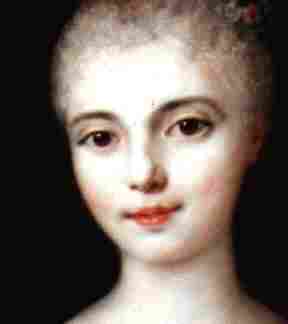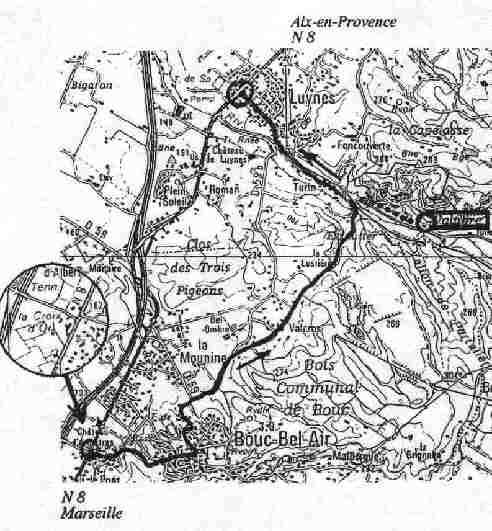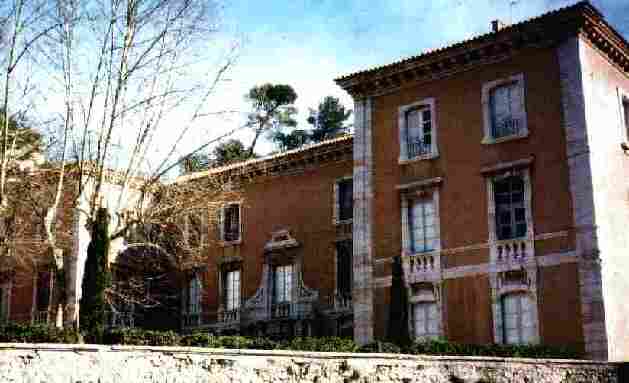


Henriette;
Or,
The Mystery of the Golden Cross.
 However, another reference to Henriette could be of importance, that is
she played the cello masterly (Casanova described Henriette as an excellent
cellist, and he even presented her with such an instrument in Parma in
1749). Dr. André seeked for such a lady and in fact he found in
the Musée Granet, Aix-en-Provence, an oil-painting (here a detail)
by Nicolas de Largillière (Paris, 1656 - 1746), titled "Adélaide
de Gueidan and her younger sister on the cembalo"(Photo:
Musée Granet / Louis André).
However, another reference to Henriette could be of importance, that is
she played the cello masterly (Casanova described Henriette as an excellent
cellist, and he even presented her with such an instrument in Parma in
1749). Dr. André seeked for such a lady and in fact he found in
the Musée Granet, Aix-en-Provence, an oil-painting (here a detail)
by Nicolas de Largillière (Paris, 1656 - 1746), titled "Adélaide
de Gueidan and her younger sister on the cembalo"(Photo:
Musée Granet / Louis André).
 .
.